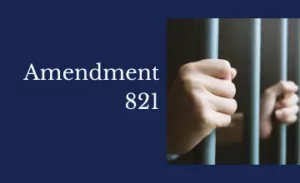
There are some crucial aspects to consider when hiring an appellate attorney and you need to know the right kind of questions you should ask to ensure they’re the right fit for you.
Now, let me tell you, appeals are no ordinary matter. They possess a distinct nature that sets them apart from anything else you might encounter.
Amidst the sea of attorneys versed in criminal law or experienced in DWIs or murder trial cases, you need an attorney who truly knows their stuff when it comes to appeals. But how can you be sure?

Jacob Blizzard: Board Certified Criminal Appeal – Criminal Law
Well, sure, they might advertise their expertise, but there are more objective ways to assess their competence. For instance, an attorney well-versed in Criminal Appeals might pursue board certification in the field. To attain this prestigious certification, an attorney must have filed at least 50 briefs over their career, with 25 of those filed within the last three years.
They must have argued before the court of appeals or Court of Criminal Appeals, or tackled cases related to writs of habeas corpus and similar matters. Now that’s an impressive track record! But that’s not all – a recommendation from judges and other esteemed lawyers in their professional network also plays a vital role. Board certification acts as a solid benchmark when choosing your appellate attorney.
More information on Texas Board of Legal Specialization – Criminal appeals, may be found here: https://www.tbls.org/specialtyarea/CA
Another factor to bear in mind is the attorney’s familiarity with your jurisdiction.
While some appellate attorneys may practice nationwide and have handled cases in your state at some point, it’s essential to have an attorney who regularly operates within your jurisdiction with state cases. Mastering the law, understanding the grounds for their arguments, and being adept at pursuing relief in Texas requires more than just a fleeting presence.
It demands a deep understanding of the state legal system and a commitment to delivering optimal results.
So remember, engaging the right Texas appellate attorney entails considering qualifications, expertise in your jurisdiction, and even digging a little deeper to assess their activity.
Texas Board of Legal Specialization Information:
- Practice law full-time for at least 5 years as an active member of the State Bar of Texas;
- At least 3 years of Criminal Appellate Law experience with a yearly minimum 25% substantial involvement with Criminal Appellate Law matters;
- Performed substantial work in drafting the pleadings or brief for a party in a minimum of 50 Criminal Appellate cases with a minimum of 5 oral arguments at a Court of Appeals, the Texas Court of Criminal Appeals, a United States Circuit Court of Appeals, or the United States Supreme Court during their entire practice;
- Qualified vetted references from judges and lawyers in the area;
- Complete 60 hours of TBLS approved continuing legal education in Criminal Appellate Law;
- Meet all of the TBLS Standards for Attorney Certification; and
- Pass a comprehensive 6-hour examination in Criminal Appellate Law.
About The Attorney
 Jacob Blizzard is board certified in both criminal law and criminal appellate law.
He regularly practices in the areas of state and federal criminal defense, criminal appeals, post conviction writs of habeas corpus.
In Texas, there are more than 100,000 attorneys licensed to practice, but only 7,450 are board certified.
In the entire State of Texas, as of the 2019 certification year, there were only 87 attorneys board certified in both criminal law and criminal appellate law, making Mr. Blizzard one of 0.087% of attorneys in Texas to hold both of those certifications.
Jacob Blizzard is board certified in both criminal law and criminal appellate law.
He regularly practices in the areas of state and federal criminal defense, criminal appeals, post conviction writs of habeas corpus.
In Texas, there are more than 100,000 attorneys licensed to practice, but only 7,450 are board certified.
In the entire State of Texas, as of the 2019 certification year, there were only 87 attorneys board certified in both criminal law and criminal appellate law, making Mr. Blizzard one of 0.087% of attorneys in Texas to hold both of those certifications.



